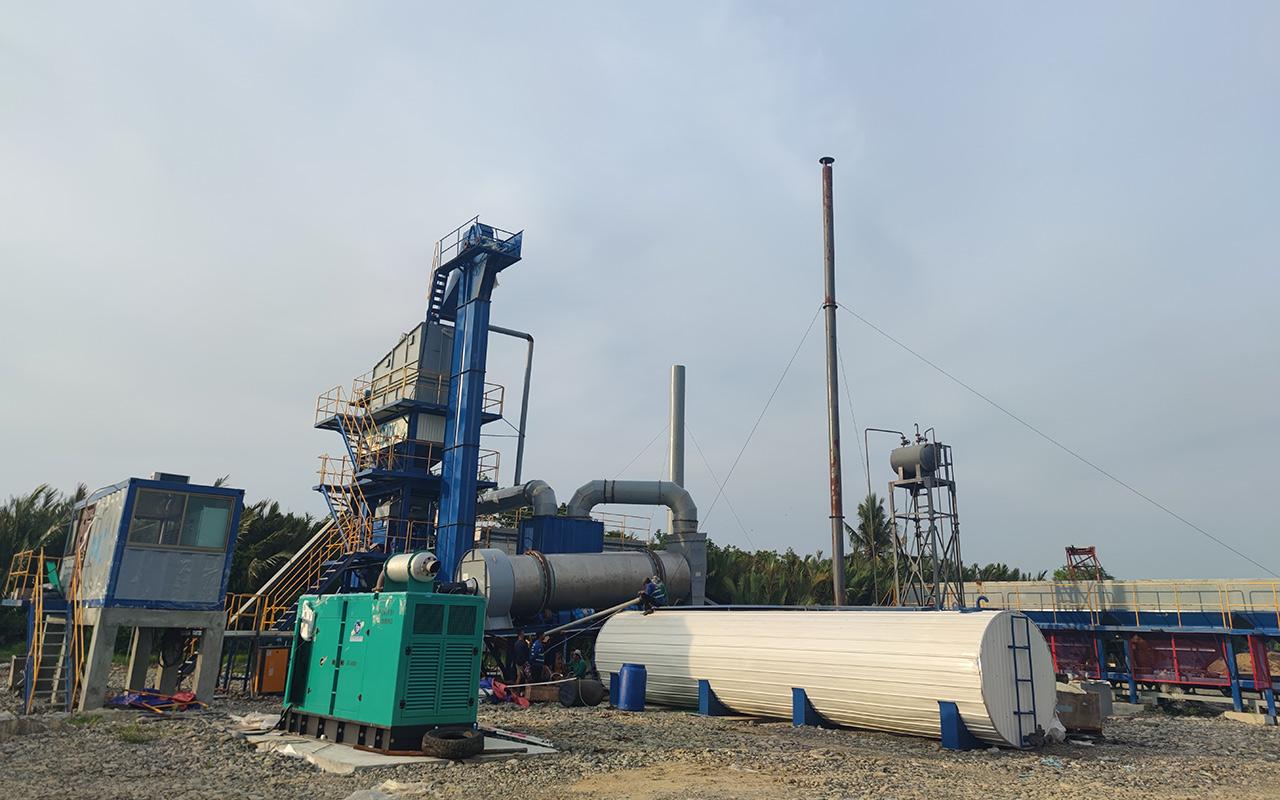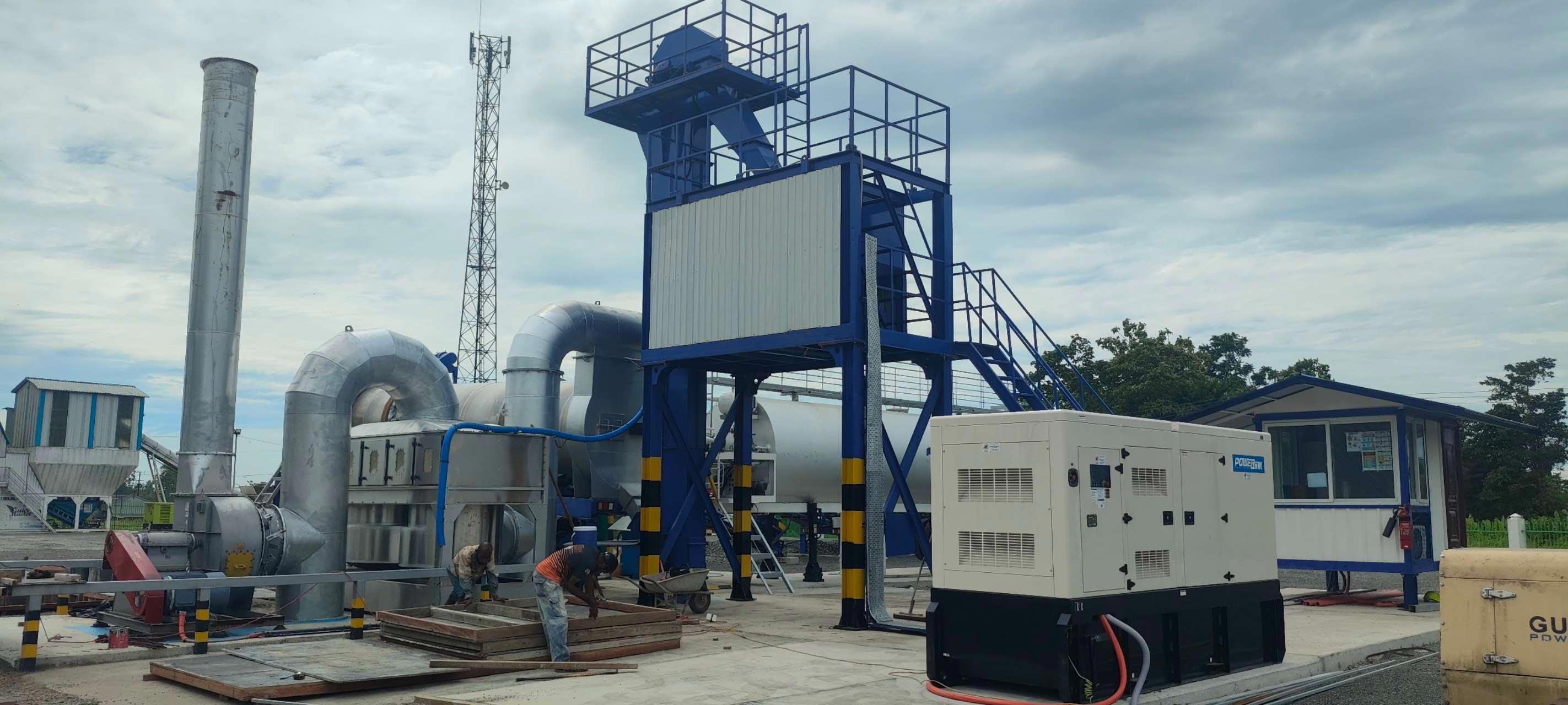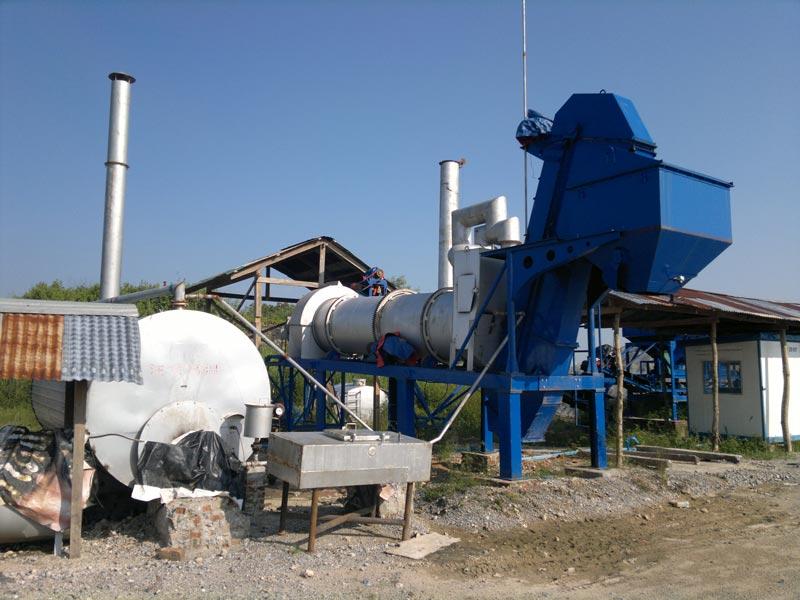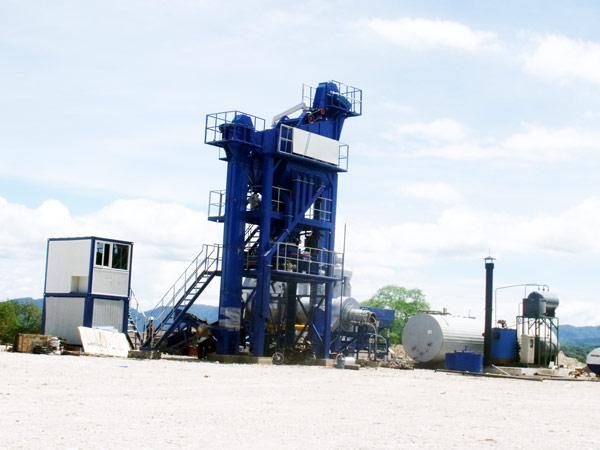Impacts of Promoting Green Building Materials on Asphalt Mixing Plants

The promotion of green building materials is reshaping the construction industry, and asphalt mixing plants are no exception. As sustainability becomes a priority, these plants must adapt to new demands and practices. This article examines the impacts of green building materials on asphalt mixing plants, focusing on operational adjustments, material innovations, and industry competitiveness.

Operational Adjustments to Meet Sustainability Standards
As the demand for green building materials rises, asphalt mixing plants are required to modify their operations to comply with sustainability standards. This involves adopting more environmentally friendly practices in the production of asphalt. For example, many plants are now integrating waste materials, such as recycled asphalt pavement (RAP), into their mixtures. This not only reduces waste but also lowers the carbon footprint of asphalt production.
In stationary asphalt mix plants, operators must ensure that their equipment can handle these recycled materials effectively. This often requires upgrading machinery to improve the quality of the asphalt produced while maintaining efficiency. Additionally, mobile asphalt plants may need to adapt their processes to allow for the use of locally sourced recycled materials, minimizing transportation emissions and costs.

Innovations in Materials and Technologies
The shift towards green building materials encourages innovation within asphalt mixing plants. Manufacturers are increasingly developing eco-friendly asphalt products that incorporate sustainable materials, such as bio-based binders or warm mix asphalt technologies. These innovations not only enhance the environmental profile of the asphalt but also improve its performance characteristics.
For instance, warm mix asphalt allows for lower production temperatures, which reduces energy consumption and emissions. This is particularly beneficial for batch mix asphalt plants, where temperature control is crucial for achieving optimal mixture quality. By embracing these technologies, asphalt mixing plants can produce high-quality, sustainable asphalt that meets the evolving demands of the construction industry.
Moreover, the introduction of environmentally friendly materials often stimulates research and development within the sector. Asphalt plant operators are more likely to collaborate with suppliers and researchers to explore new formulations and methods that align with green building initiatives. This collaborative approach can lead to more innovative solutions that enhance the overall sustainability of asphalt products.

Enhancing Competitiveness in a Changing Market
As the construction industry increasingly prioritizes sustainability, asphalt mixing plants that adapt to the promotion of green building materials will gain a competitive edge. By implementing eco-friendly practices and producing sustainable asphalt mixtures, these plants can attract clients who are committed to environmentally responsible construction.
Furthermore, adhering to green standards may open up new market opportunities, such as government contracts or projects focused on sustainable infrastructure. Asphalt plants that invest in green technologies and practices are better positioned to meet regulatory requirements and public expectations, ensuring long-term success in a competitive landscape.
In addition, the shift towards sustainability can also lead to cost savings in the long run. By utilizing recycled materials and reducing energy consumption, asphalt mixing plants can lower their operational costs while contributing to environmental conservation. This dual benefit enhances their appeal to clients and stakeholders alike.
Conclusion
In conclusion, the promotion of green building materials significantly impacts asphalt mixing plants by necessitating operational adjustments, fostering innovation, and enhancing competitiveness. As the industry evolves, asphalt producers must embrace sustainable practices and technologies to meet the growing demand for environmentally friendly construction solutions.
By adapting to these changes, asphalt mixing plants can position themselves as leaders in the sustainable construction movement, ensuring their relevance and success in an increasingly eco-conscious market. Whether through stationary or mobile setups, the commitment to sustainability will define the future of asphalt production.
- Information Technology
- Office Equipment and Supplies
- Cars and Trucks
- Persons
- Books and Authors
- Tutorials
- Art
- Causes
- Crafts
- Dance
- Drinks
- Film
- Fitness
- Food
- Giochi
- Gardening
- Health
- Home
- Literature
- Music
- Networking
- Altre informazioni
- Party
- Religion
- Shopping
- Sports
- Theater
- Wellness



